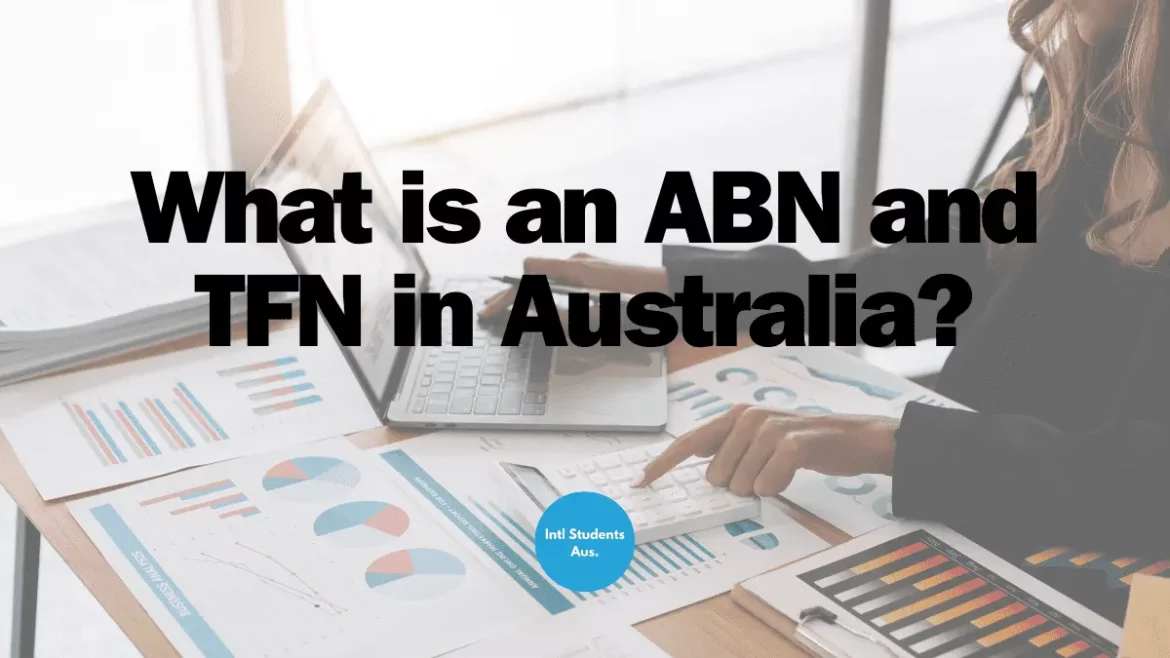Key Takeaways: If you are an employee you will need a Tax File Number (TFN). If you’re looking to run a business or be a contractor/freelancer you will need an Australian Business Number (ABN) in addition to a TFN.
As an international student if you’re looking to work in any form (part-time, full-time, or casual) it’s important to understand the difference between a TFN (Tax File Number) and an ABN (Australian Business Number). To work in Australia, you must also pay Australian taxes as you will be considered an Australian resident for tax purposes by the ATO (Australian Tax Office). In this guide let’s first take a look at what exactly a TFN and an ABN are and then their differences. These two numbers are unique identifiers that are both used for tax purposes in Australia.
What is a TFN (Tax File Number)?
To work as an international student in Australia, you must also pay Australian taxes. To pay taxes, you need to have a personal reference number, so that all your payments and superannuation contributions can be linked to you and this one number. This reference number is known as a Tax File Number or a TFN. TFN or (Tax File Number) is a 9-digit number that identifies you as an employee and a taxpayer in Australia. Anyone who wants to work in Australia will need to have a TFN. Learn how to apply for one using this guide.
Working with a TFN is the most common way to get paid in Australia. Usually, when you are paid via TFN, your tax is deducted before you receive your salary in your account. This makes things easier when tax time comes around.
What is an ABN (Australian Business Number)?
Another option for receiving payment involves registering as a ‘sole trader’. If you provide professional or technical services and receive payment through as a business you will need an ABN (Australian Business Number). When opting for this approach, you typically receive the gross amount, with no tax deducted beforehand. It is your responsibility to report your earnings during tax time and settle your annual tax liability once per year.
If you decide to pursue this payment method, ensure that you allocate a portion of your earnings to cover your tax obligations. Learn how to apply for one using this guide.
Things to look out for as an International Student when first starting to work
Keep in mind that for international students, adherence to work limitations during the academic term (when your university session is on) is essential, allowing you to work up to 40 hours per fortnight, regardless of whether you’re engaged with work through an ABN, TFN, or both. You are free to work as many hours as you’d like when the university session is not on (during your holidays).
Frequently Asked Questions
Can you have an ABN and a TFN at the same time?
Yes. You can have both an ABN and a TFN at the same time. You are required to have a TFN first before applying to an ABN. This is due to all your tax obligations being tied to the TFN.
Can I work more than 40 hours if I have both an ABN and a TFN?
As an international student, you are only allowed to work a maximum of 40 hours in total. This rule applies whether you work as part of an ABN or a TFN. Do not make the mistake of thinking you can work more than 40 hours per fortnight just because you work one job under a TFN and the other under an ABN.
How long will it take for me to get my TFN/ABN?
It usually takes between 1-2 business days. However, it may take longer during peak time or if the Australian Tax Office (ATO) needs more documents from you.
Do I need to renew my ABN or TFN each year?
No. Once you have an ABN or a TFN, it is yours for life. However, it’s crucial to keep your details up to date with the Australian Business Register (ABR) and the Australian Tax Office (ATO). If your personal or business details change or become outdated, you should update them to ensure accurate information.
YellowLinker – Free Link Directory

